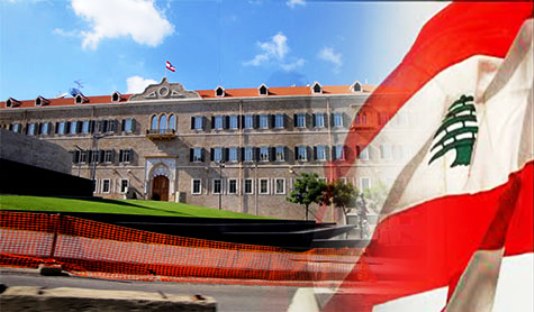Lebanon’s long wait for a government
Eyad Abu Shakra/Al Arabiya/December 16/16
Against the background of Syria’s debacle, Lebanon continues to wait for the birth of its first government (cabinet) under its new president Michel Aoun.
Yet, Lebanon, long regarded by Hafez al-Assad, and later Bashar al-Assad, until 2011 as ‘Syria’s soft belly’, looks in better shape than its ‘Older Sister’. There is no fully-fledged destructive war here. No declared and systematic sectarian displacement carried out by force with official international blessings. And no need for the East and West to call a common strategy for confronting extremist groups, operating in territories controlled and occupied by militias unopposed by regional and international powers, as a result of limiting the anathema of terror and terrorism to a single confessional strain while overlooking others.
Thus, Lebanon looks ‘great’ compared with Syria; however, this should not mean that things are really moving in the right direction, especially in the light of the failure of Prime Minister-designate Saad al-Hariri to form a new government.
When Hezbollah nominated Aoun, head of the Free Patriotic Movement, as Lebanon’s presidential candidate, and forced a presidential ‘vacuum’ for almost two and a half years until it got its way, opinions were divided on its choice of candidate, its suspension of the elections process, and the way it would deal with ‘President’ Aoun!
Initially, before the February 2006 ‘agreement’ between the two sides, Hezbollah was not a great fan of Aoun, and neither did the hardline Christian Maronite leader believe much in Hezbollah’s policies of ‘Resistance’. Later, however, both decided to bury the hatchet and enter a ‘marriage of convenience’ against the anti-Tehran and anti-Damascus ‘14 of March’ loose coalition, born in the aftermath of the assassination of the former Prime Minister Rafiq al-Hariri in February 2005 against what was described as the ‘Lebanese-Syrian Security Regime’, and Hezbollah’s open support of the al-Assad regime- then widely accused of carrying out the assassination.
Since February 2006, Aoun has been providing almost full backing to Hezbollah’s policies and actions, inside and outside Lebanon; while the latter has turned its ‘agreement’ with Aoun into a blueprint of its dealings with Lebanon’s religious sects. Hezbollah through its leaders and mouthpieces has been citing its ‘respect of the powerbase’s wishes’ within the Christian communities for Aoun to justify its all-out support for him; and thus regarding Aoun as the ‘most popular Christian Lebanese leader’ the Shiitete powerful militia claimed it was abiding with the spirit of the country’s unwritten ‘National Pact’.
This however, has been rarely practiced by Hezbollah toward other sects, namely the Sunnis and Druze. The pro-Iran powerful militia brought down the national unity cabinet headed by the leading Sunni Saad al-Hariri in January 2011, and formed an alternative cabinet with poor Sunni cover. On the Druze front, it not only pushed to ‘neutralize’ the supreme Druze leader Walid Jumblatt, but also ‘invented’ alternatives even to his traditional competitor Emir Talal Arslan, in case Arslan decided to side with Jumblatt on issues vital to their small community.
A ‘side show’
The Syrian Uprising, then civil war and international intervention, were bound to profoundly affect the Lebanese. As the weak independent capabilities of Bashar al-Assad’s regime became clear for all to see, Iran’s plans for regional and sectarian hegemony became clearer; best manifested in Hezbollah’s direct involvement in combat duties inside Syria under the guidance of Iran’s IRGC. Later on, the regional and international picture became clearer still with the signing of JCPOA (i.e. the Iran – American nuclear deal), and Russia’s direct military intervention in support of al-Assad with Washington’s silent approval.
Lebanon remains a ‘soft belly’ although its fragility has now spilled over across its border and spread into its region
In such a scenario, Lebanon became a ‘side show’, a refuge for the displaced, and a land controlled by the illegitimate forces of the ‘Status Quo’ which until recently were – along with their sponsor, Iran – accused of aiding and perpetrating terrorism.
Furthermore, the crippling of political activity entwined with economic collapse and acute Shiite – Sunni polarization, both inside and outside Lebanon, have necessitated some sort of a political deal. However, Lebanon’s internal problems neither disappeared by making Aoun president and al-Harari prime minister, nor has the state’s wellbeing been assured given the fact that some local players continue to reject the ‘Taif Accords’ and conspire against them.
Hence, Lebanon remains a ‘soft belly’ although its fragility has now spilled over across its border and spread into its region. This is making more difficult the job of a political class that proves everyday it does not believe in coexistence, is not brave enough to be frank about it, is unable to read the changing scene and seems unable to learn from past mistakes.
*This article was first published in Asharq al-Awsat on December 9, 2016.



















